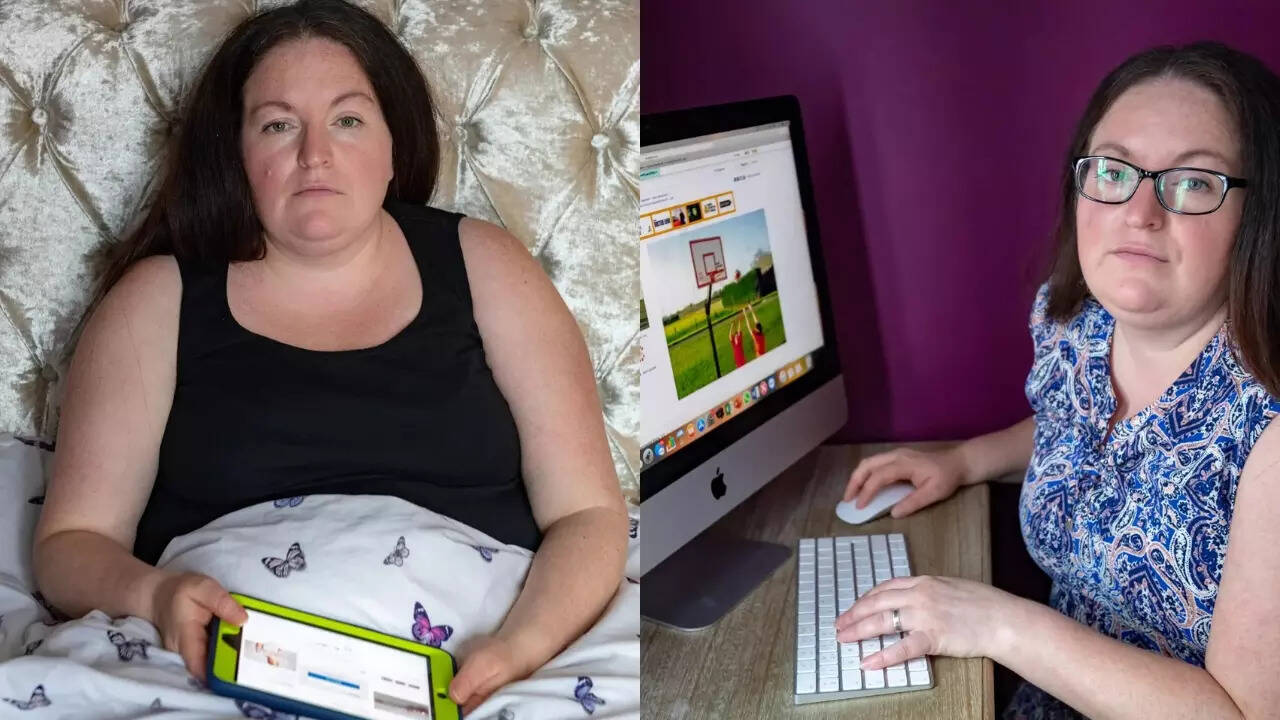Shopping
How a Woman Blew Rs 3 Lakh on Online Shopping in Her Sleep

A woman diagnosed with parasomnia, a sleeping disorder that causes abnormal behaviours, is prone to online shopping in her sleep – so much so that she has spent $3,800 (that’s over Rs 3 lakh) on things she doesn’t need. Kelly Knipes, 42, of Essex, England, started out sleepwalking – now she wakes up to random packages.
Knipes is unaware of her shopping in real-time, thanks to parasomnia, her sleeping disorder. | SWNS
KEY HIGHLIGHTS
- Kelly Knipes has a sleeping disorder called parasomnia, due to which she shops in her sleep without knowing it.
- Over the years, the shopaholic has blown over Rs. 3 lakh on random purchases, only to wake up to order deliveries.
- Knipes uses a CPAP machine to keep her airway open but unknowingly removes the jaw-locking device at night.
A woman diagnosed with parasomnia, a sleeping disorder that causes abnormal behaviours, is prone to online shopping in her sleep – so much so that she has spent $3,800 (that’s over Rs 3 lakh) on things she doesn’t need. Kelly Knipes, 42, of Essex, England, started out sleepwalking – now she wakes up to random packages.
Items the shopaholic bought in her sleep include refrigerators, tables, tins of paint, a children’s playhouse and – get this – a full-sized plastic basketball court with a net, pole and backboard.
“I was racking up debt everywhere,” Knipse recalled. “I would never actually have to put any credit card details when I was buying things online because it was all saved on my phone.”
Things got worse when she unknowingly revealed her sensitive information to scammers, who then took out $317 from her bank account overnight.
“I wouldn’t have replied to it if I was awake,” the parasomniac said.
Several subsequent fraud attempts have been thwarted by Knipes’ bank, with the event manager cancelling her cards on a few occasions.
The compulsive shopper said she also struggles with her returning her orders, especially after her children have seen them.
All three of her kids have some sort of disability; epilepsy, deafness or learning challenges that could potentially require her attention overnight, ruling out sleeping pills.
Knipes, whose sleepwalking habits began after the birth of her first child, believes it was her sleep apnea that developed into parasomnia.
A continuous positive airway pressure (CPAP) device helps her keep her airway open at night. The catch? Her jaws lock while sleeping, forcing her to remove the machine. Just like shopping, she’s unaware of this too when it happens in real-time.


)






